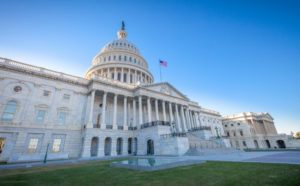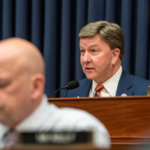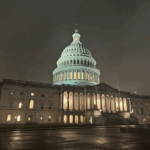
Four conservative groups have offered support for amendments proposed by progressive lawmakers to the House’s version of the next defense policy bill that aims to cut defense spending by as much as $100 billion. Ahead of the House’s start to floor debate of the fiscal year 2023 National Defense Authorization Act (NDAA) on Wednesday, the National Taxpayers Union, R Street Institute, Taxpayers for Common Sense, Taxpayers Protection Alliance sent a letter to the House Rules Committee leadership urging consideration of…

 By
By 











